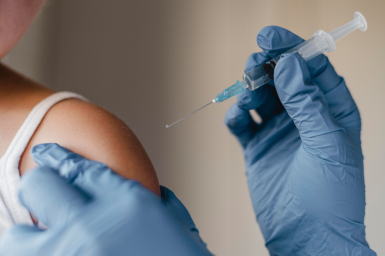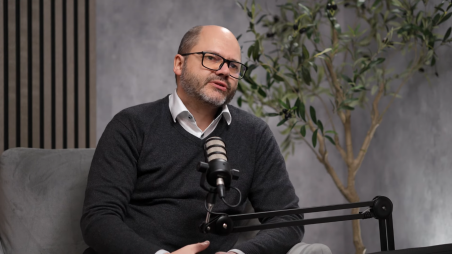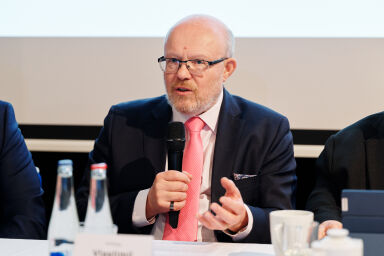Steady market supply, high flexibility in production planning and sustainable employment with high added value. These are some of the benefits of producing pharmaceuticals domestically. Zentiva’s Country Manager for the Czech Republic, Boris Sananes, said this at the start of the second day of the Healthcare Daily’s Summit on Technology and Innovation in Healthcare. Among other things, he described how his company has managed the surge in demand during the covid pandemic and commented on Europe’s critical link to Asian countries in the matter of drug production.
„We have to do everything possible to avoid dependence on the Asian supply chain,“ Sananes said in response to the words of Prime Minister Petr Fiala, who in his speech at the summit expressed his support for greater self-sufficiency of the Czech Republic and the European Union not only in the production of pharmaceuticals. Production in Asia, he said, carries many risks, which Europe felt last year in the context of shortages caused by the war in Ukraine. „When Russia launched the invasion … the whole supply chain came to a halt,“ Sananes said, adding that while medicines had previously travelled to Europe by train via Russia, they had to be transported by ship because of the war. The shipments went from a usual ten-day transport to six weeks. This brought Zentiva’s shortages to 11 percent, whereas before the disruption to global supply chains they were around 2 percent.

“Let’s not store boxes but ingredients”
Protecting against drug shortages resulting from unforeseen events is just one of the benefits of domestic drug production, according to Sananes. Another is high flexibility. As an example, he cited a drug with the molecule norepinephrine, which is used in resuscitating patients in serious conditions. By manufacturing it in the Czech Republic, Zentiva was able to respond more flexibly to increased demand during the covid pandemic. From 3,223 litres (851 gallons) in 2020, the company increased production of the drug to 4,107 litres (1,085 gallons) next year, an increase of more than 27 percent. „This drug has not had a single day of shortage,“ Sananes said.

At the same time, he pointed out another important aspect of „domestic production“, namely the possibility of local storage of ingredients, which can be quickly assembled if necessary. This is more efficient than storing ready-made boxes. „Pallet capacity in the Czech Republic is almost at its maximum,“ Sananes lamented. „Instead of storing boxes, we can only store active ingredients, excipients and packaging materials and put it together when needed,“ he said.

Investments and a predictable environment
Sananes said several things are needed for a successful return of drug manufacturing to EU countries – support and investments, a sustainable and predictable pricing and reimbursement environment, and a clearly defined European agenda to ensure self-sufficiency in the availability of medicines.

With a 19% market share, Zentiva is the largest producer of medicines in the Czech Republic. It supplies over 400 types of medicines. It also dominates in Slovakia and Romania and is a key supplier of pharmaceuticals in other European countries such as France, Germany and the Baltic States. Sananes also recalled the importance of Zentiva as a major domestic exporter. „We are not only a solid supplier of pharmaceuticals in the Czech Republic, but we contribute to the success of the Czech economy overall,“ he added.
-fk-
Photo by Radek Čepelák
The Healthcare Daily would like to thank Roche, Zentiva, ORCZ, Medtronic, Medicalc, Novartis, Alk, Akeso, EUC, MyCom, Satum and the health insurance companies VZP, ZP MV and RBP for their support of the summit.







